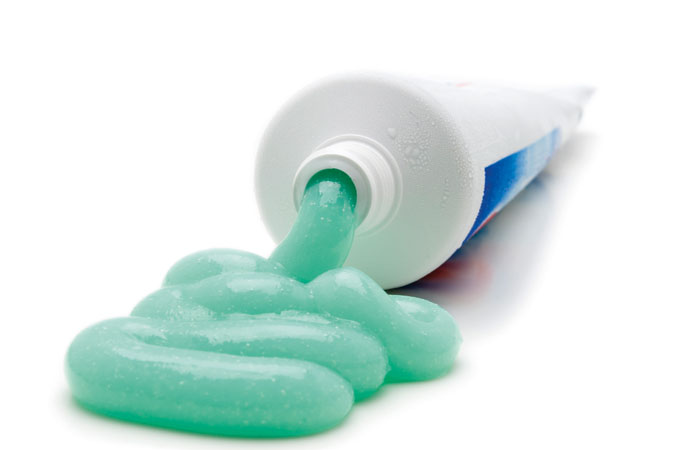In Conditions
Follow this topic
Bookmark
Record learning outcomes
The mouth has a remarkable ability to heal itself. In fact, it’s thought a cut in the mouth can heal three to four times faster than anywhere else on the body. But sometimes, the mouth may need extra help to return to full health, opening up a key role for pharmacy teams in helping customers with over-the-counter (OTC) advice and management for common oral health conditions such as mouth ulcers, cold sores, bad breath, bleeding gums, dry mouth or toothache.
Up against ulcers
Mouth ulcers are painful round or oval sores affecting up to 20 per cent of people, particularly women and young people. They’re usually white, red, yellow or grey in colour and are inflamed (red and swollen) around the edge.
They will take time to heal but there are products available in the pharmacy that may help or offer some pain relief. “These include antimicrobial or saline mouthwashes which will help clean the area, corticosteroid lozenges to reduce the swelling around the ulcer and pain-relieving gels, liquids or sprays which form a film over the ulcer to stop anything from touching it,” says Kenny Chan, Numark lead information services pharmacist.
Even though most mouth ulcers are harmless, there are incidences where they could be a sign of an underlying problem, and this is when the customer should be referred to their dentist or GP. “Refer patients who have had a mouth ulcer for longer than three weeks, if it is unusual looking, larger than normal or in an unusual place in the mouth such as the back of the throat,” adds Kenny. “If the ulcer is bleeding and very painful, this could be a sign of an infection, and patients who have multiple mouth ulcers should also be referred.”
One kiss is all it takes
Cold sores are small blisters that develop on the lips or around the mouth, caused by the herpes simplex virus. The first symptom of a cold sore is usually a burning or stinging pain at the affected site, followed by pink bumps and small blisters which dry and crust over.
Cold sores usually clear up by themselves within seven to 10 days without treatment, but a cool wet compress may help to soothe the irritation, as will applying a moisturising cream such as petroleum jelly to the skin. Washing the area gently with a salt bath or wash can also help. OTC antiviral creams can ease symptoms and speed up healing time, but to be effective they need to be applied as soon as the first signs of a cold sore appear.
“Oral conditions such as mouth ulcers, dry mouth and cold sores generally do not need professional treatment,” reassures Karen Coates, registered dental nurse and oral health educator at the Oral Health Foundation. “Unless the problem persists (especially in the case of mouth ulcers) after an OTC remedy designed for the condition has been used.”
“A cut in the mouth can heal three to four times faster than anywhere else on the body”
Banishing bad breath
Healthy mouths shouldn’t cause problems with bad breath, but it can affect anyone from time to time.
“The most common reason for bad breath is eating or drinking things that have a strong odour, including garlic, onions, coffee, or smoking,” says Karen. “This is cosmetic bad breath and can usually be cured by using a minty, fluoride mouthwash or avoid the things that make your breath smell. However, it is important to advise customers that if the mouthwash does not rectify the problem they should seek advice from their dentist as they could have a dental problem that needs treating – and as there are some medical issues that can cause bad breath such as acid reflux, post-nasal drip, and other ENT [ears, nose, throat] conditions, you should also refer people with persistent bad breath to their GP too.”

Oral health red flags
Pharmacy team members who are unsure about a customer’s oral health issue should always refer to the pharmacist, as there are other, potentially more serious oral health problems to watch out for.
“If a customer presents with extreme toothache which is keeping them awake at night and preventing them from eating, obvious swelling, or excessive bleeding, one or more of these symptoms indicate a dental emergency and the customer should be referred to their dentist, or if they do not have a dentist then call 111 for an emergency appointment,” advises Karen.
Other oral symptoms such as ulcers that have not healed within three weeks, red or white patches, any lumps or bumps in or around the mouth, loose teeth, persistent hoarseness of the voice, or the inability to stick the tongue out straight could be signs or symptoms of more serious conditions, such as mouth cancer. If any one or more of these are reported by the customer then, again, they should be referred to their dentist if possible, or their GP.
Menopause and oral health
Perimenopause and menopause can also have an effect on oral health.
“We know too that falling oestrogen levels can affect the mucous membranes of the body, including the inside of the mouth, which can make gums more sensitive and vulnerable to recession,” says Eileen Durward, menopause advisor at A.Vogel. “Gums help to stabilise the teeth, so if the gums start to recede it can make the person much more vulnerable to tooth loss and also more susceptible to tooth decay. Falling oestrogen levels also have an impact on bone density – leading to jaw shrinkage – and weakened teeth that can chip more easily.”
Thankfully, there is plenty of advice that pharmacy teams can give people to help their teeth during perimenopause and menopause.
“Good oral hygiene is really important,” says Eileen. “So that’s brushing twice a day, flossing, and using natural mouthwash. The mouth can become much more sensitive at this time, so I recommend using alcohol-free mouthwash, and a more natural toothpaste. Customers could also consider a supplement called CoQ10 if they are getting loose or receding gums, and calcium and magnesium supplements too, just to help with all of the bone-strengthening issues.”
The impact of diet on oral health
It will come as no surprise that sugary and acidic food and drink can have a negative effect on the health – and look – of teeth.
“Too much sugar in foods and drinks such as sweets, biscuits, cakes, chocolate, fizzy drinks etc. can cause dental decay so it is important to try to keep them to a minimum or have as part of a mealtime, to give the saliva a chance to neutralise the damaging plaque acids which cause the cavities to form in the teeth,” says Karen Coates, registered dental nurse and oral health educator at the Oral Health Foundation.
The surface of the enamel on the teeth can also be damaged by food and drink that is acidic. “Food such as fruits, especially citrus fruit, and drinks including fruit juices, smoothies, fruit teas, wine, prosecco and fizzy drinks contain acid,” explains Karen. “So after eating or drinking anything sugary or acidic you can recommend chewing sugar-free chewing gum for 20 minutes or rinse with a fluoride mouthwash to help to reverse the effects of the sugar or acid on the teeth.”
For everyday dental protection Karen recommends brushing for two minutes, last thing at night and at least one other time during the day with a fluoride toothpaste. For adults, the recommended level of fluoride in the toothpaste should be between 1350-1500ppm (parts per million).
Coffee and red wine stain tooth enamel, so pharmacy staff can recommend tooth-whitening toothpaste to remove surface stains, as well as whitening mouthwashes that will help to improve enamel colour.
Medication that contains sugar can also cause dental decay, so Karen adds: “It is important that a sugar-free option is always offered as an alternative.”
Gum’s the word
Many people may experience bleeding gums from time to time, but this is not a problem to be dismissed.
“Bleeding gums can often be the first sign of gum disease, called gingivitis”, warns Karen. “The gums bleed because plaque and debris has been left on them and the gums become irritated, red and swollen, causing them to bleed when brushed and sometimes when eating. However, this first stage of gum disease can be reversed with an improved oral hygiene routine, so the pharmacy team could recommend an anti-bacterial toothpaste and mouthwash, a good toothbrush and interdental brushes, tape, or floss to help to clear up the gingivitis.”
Often when people see blood on their toothbrush or when they spit they think that they are brushing too hard and try to avoid cleaning the areas that bleed, but Karen says that bleeding gums are actually a sign that more toothbrushing is needed. “It is important to advise the customer to continue to brush and clean in-between their teeth more effectively and the bleeding should stop within a few weeks,” she says. “If the bleeding does not stop with an improved cleaning regime they should seek further advice from their dentist.”
“Several studies have shown a significant link between moderate or severe gum disease and dementia”

It’s important to pick toothpaste with the right levels of fluoride for both adults and children.
Other problems from gum disease
While the early stages of gum disease are treatable and reversible, some people develop a chronic destructive form of gum disease called periodontitis, which is irreversible and progresses to tooth loss.
In addition, research is increasingly showing that gum disease can make people more likely to develop other serious health conditions. For example, several studies have shown a significant link between moderate or severe gum disease and dementia. Gum disease is also associated with cardiovascular disease, as well as being both a complication of type 2 diabetes and increasing the risk of developing type 2 diabetes. And finally, having gum disease has also been shown to put a person at greater risk of developing cancers such as oesophageal, stomach and pancreatic cancer.
Dentures and how to care for them
Dentures, like natural teeth, should be cleaned twice a day with a soft brush and denture-specific paste. But what else do denture wearers need to know in order to keep their dentures in tip-top condition?
“Taking out and rinsing dentures after eating will remove any large food particles trapped in the dentures,” says Kenny Chan, Numark lead information services pharmacist. “Soak the dentures with a denture cleanser overnight to keep them moist and help retain their shape but avoid products that can damage the dentures – even hot water can bend the dentures out of shape.”
Denture wearers should also make sure they rinse the dentures before putting them back into the mouth because, warns Kenny: “Often the denture cleansers contain chemicals which can irritate the mouth.”
In addition, regular dental check-ups will help maintain the dentures. “If the dentures become loose or ill fitted see the dentist to prevent sores, ulcers and infections occurring,” he adds.
Protecting oral health
Gum disease is preventable and reversible in the early stages, and while good oral hygiene – including regular dental check-ups – is the cornerstone of oral health overall, there are other lifestyle factors that have an effect, such as avoiding sugar and quitting smoking.
With Pharmacy First likely to drive even more customers into pharmacy, pharmacy teams have an increasing opportunity to consolidate their position in the community as healthcare experts, as well as to make the most of the increasing number of products available to help people take good care of their mouths.

Future benefits of water fluoridation not guaranteed
Future benefits of water fluoridation not guaranteed
Existing drinking water fluoridation programmes in England still provide marginal savings for the NHS, according to a new study led by University of Manchester researchers.
The National Institute for Health and Care Research funded data study of 6.4 million UK adults and adolescents across England found people receiving optimally fluoridated water experienced a three per cent reduction in NHS invasive dental treatments such as fillings and extractions, and a two per cent reduction in the numbers decayed, missing, and filled teeth, when compared to the non-optimally fluoridated cohort over 10 years.
Lead author Dr Deborah Moore, an honorary lecturer at The University of Manchester, says: “As the costs of NHS dentistry are much higher than the costs of water fluoridation, the relatively small observed reductions in visits to the dentist still resulted in a positive return for the public sector.”

